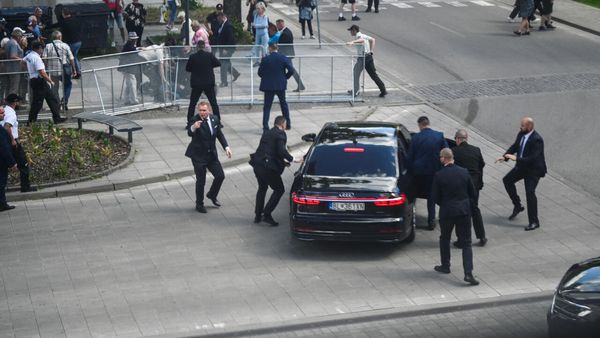
“Our forgiveness is part of the abuse cycle.” – Grace Tame, The Ninth Life of a Diamond Miner
Alex Case was 14 years old in 2005, when he was groomed online by Jeffrey Corfe, lured to his house and raped. Corfe was 44. Those are the bare facts of the case.
The other bare fact is that, last week, after pleading guilty to a single charge of sexually penetrating a child under the age of 16, Corfe was handed a 12-month prison sentence, suspended for two years. That means he will be doing no prison time.
Case came forward on the day of sentencing, surrendering his right to anonymity, to tell his story and expose his ongoing trauma in the hope that it will help — him and other survivors. I know this because I know him, having worked with him during the criminal process in a background supportive capacity. I know he is a brave young man, still trying to understand what happened to him and how to live with the consequences.
The case attracted considerable media interest in Melbourne as it made it way through the courts, because Corfe is better known as “Joffa”. Here is how Nine News reported the sentencing outcome: “Collingwood superfan dodges jail over child sex abuse”.
It is a phenomenon so universal that we are conditioned to not notice it: perpetrators — whether alleged or convicted — are routinely elevated by the media to the highest extent of their accomplishments, while their victims are reduced to the lowest.
What is the relevance of Corfe’s status as a “superfan”, or the social utility of including in news reportage of his crime — as Nine did — of a photo of him barracking at a Collingwood game in full club colours? It has none, but it humanises him.
Tame again: “Nothing is harmless in the hands of the harmful. Every offering of forgiveness enables them, and endangers the rest of us. Every philosophical attempt to rationalise their behaviour. Every over-egged humanisation of their character.”
Her point is that perpetrators of child sexual abuse are calculating, intentional actors, “among the most sophisticated narrative manipulators”. They take every edge we give them, and use it — not against us, but against their helpless victims. Their grooming is of everyone.
Corfe’s sentencing judge in Victoria’s County Court told him that if he had not pleaded guilty he would have got a serve of two years and four months, with half of that non-parole. However, his plea entitled him to a discount — effectively down to zero.
The judge, as he was required to do by sentencing practice, took into account a range of mitigating factors in Corfe’s favour. These included the assumption that his crime was a one-off in an otherwise blameless life; his “good character” and “significant contributions to the community”. Father Bob Maguire had provided a reference, speaking highly of Corfe’s support for his foundation and care “for the needs of the less fortunate”.
Corfe benefited also from the hard circumstances of his poor and violent upbringing, his current poor health, and a psychologist’s assessment that he is at low risk of reoffending.
The judge wasn’t blind to what Corfe had done, calling it “depraved” and noting the long-term impact it was likely to have on his victim. Nevertheless, he considered it to be on the “mid-to-lower level of the spectrum of child abuse”.
None of this is to say that this case or that judge should be singled out for particular criticism; objectively Corfe got a light sentence, but nobody who wasn’t in the judge’s shoes is in a position to second-guess his verdict and insist that it was manifestly wrong. That’s why we have appeals, if needed.
The problem that the case illustrates — as quite frankly does every other case of child sexual abuse that I’ve professionally encountered — is that as a society we are not taking the problem seriously. Child sexual abuse has distinct differences from sexual violence perpetrated on adult victims. The law provides a stark difference: a child cannot consent. That simply reflects that we ostensibly recognise that sex with a child is always wrong.
Our response to the endemic incidence of child sexual abuse in our society belies that apparent seriousness. Despite the child abuse royal commission which exposed the problem in institutional contexts, actually that is only a small part of the problem. Most of this abuse happens in private homes, perpetrated by trusted family members or friends.
Children who report remain routinely disbelieved; the system continues its rush to afford accused perpetrators every advantage it can offer.
Tame and many other advocates have been calling for a recognition by governments and courts that the mechanics of child sexual abuse are unique: uniquely sinister, uniquely consciously amoral, uniquely destructive.
Among other things, the criminal justice system’s standard responses to criminals — that their crimes are aberrations, that non-recidivism and rehabilitation are safe assumptions — are inapt to the fully conscious behaviours of child sexual predators.
We can rationalise and forgive if we choose. We’re not the ones paying the price.







